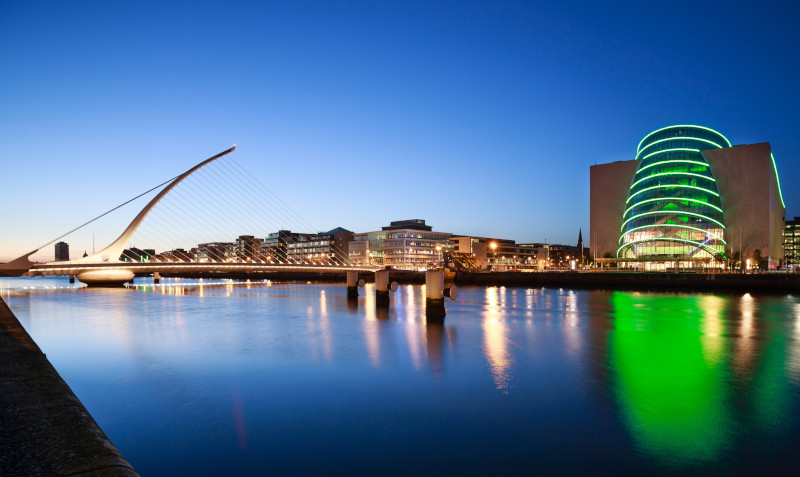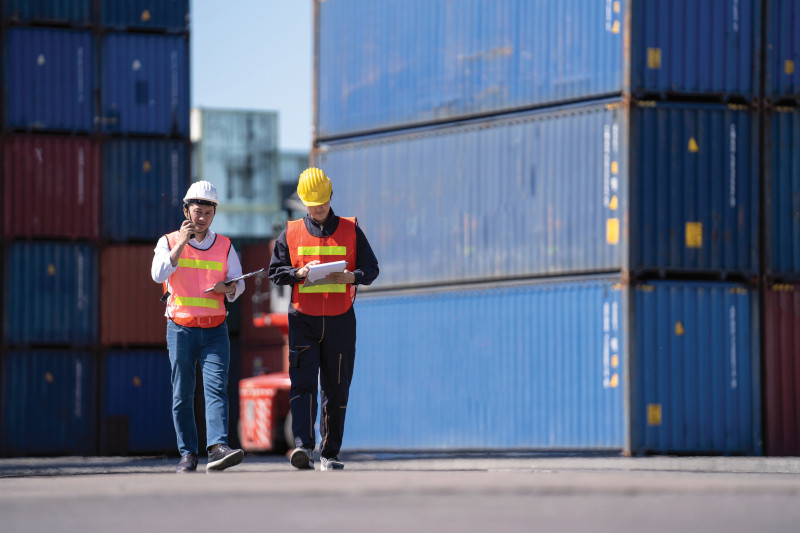
Geopolitical risks loom large for businesses in 2025. Whatever their size, sector or location, shifting global forces are making it challenging to plan for the future with any certainty.
A key source of this uncertainty is US trade policy, particularly higher tariffs. In this article, James Burgess, Head of Commercial for Atradius UK, and Sheena Bohan, Head of Commercial for Atradius Ireland, consider the impact of higher tariffs on companies in both the UK and Ireland.
Business plans on hold
The impact of rising tariffs is already being felt on the ground, even as business leaders continue to grapple with the implications. "When we sit down to talk with businesses, tariffs are the leading issue in conversations about economic risk," James says. He says this is true across a broad range of business types and across their supply chains: "In periods of uncertainty, investments and new contracts get pushed back. That affects turnover."
A huge element of this challenge is unpredictability of tariffs. Ever-changing policy means there is a risk of “planning for things that never materialise,” James says. “It’s more about what’s actually put in place and what sticks,” he adds.
As with the UK, Sheena says tariff negotiations and associated uncertainty is also the biggest geopolitical risk facing companies in Ireland. “Ireland is an open economy,” she says and “91% of our exports to the US are pharmaceuticals". Her comments come as the global pharma sector faces the threat of sector-specific tariffs.
Sheena says: "These uncertainties affect investment. While existing companies are likely to stay in Ireland, future investment and growth are slowing.”

Ireland's finance ministry predicts economic growth in the country will slow to 2% this year if a 10% tariff on U.S. imports from the European Union remains in place, or 2.5% if tariffs are removed. It’s a pattern that is expected to be repeated all over the world: the International Monetary Fund has predicted tariffs and uncertainty will lead to a "significant slowdown" in global growth.
In the UK, the construction industry - already under pressure from rising material costs, labour shortages, and project delays - is among sectors that are particularly exposed to these risks. There are concerns that private sector projects could be put on hold while investors seek to gauge the impact of tariff hikes. James says: "In the UK, the construction sector remains one of the most challenging. Even in benign times, it contributes the most to our claims. We're cautious on that sector.”
It’s a different story for the construction sector in Ireland. Sheena says: "Construction is a strong sector in Ireland, especially in housing, data centres and renewable energy. Government policy is supporting investment in climate-related infrastructure, which is also driving employment."
Tariff increases are only one element of the geopolitical instability associated with US government policy. James says: "Geopolitical risks go beyond tariffs - they extend to Ukraine, Russia, and China. The escalating US-China tensions are significant. While that might have knock-on effects elsewhere, such as new opportunities for the UK, it's still a destabilising force in global markets."

Credit insurance in demand
At a time of such acute geopolitical risk, businesses on both sides of the Irish Sea are seeking to protect themselves. More and more are exploring how credit insurance can safeguard their cash flow and provide stability in uncertain trading conditions.
Sheena says: "To mitigate risks, businesses need to explore other markets and protect their supply chains. We're seeing more interest in trade credit insurance for intelligence and assurance.”
One segment of the market that is particularly under threat is Irish whisky production. The Irish Whiskey Association has warned that the Irish spirits sector is uniquely exposed to the impact of US tariffs. Sheena says: "We recently put coverage in place for Irish whiskey distilleries, which rely heavily on US exports. They're protecting themselves due to the uncertainty around US tariffs."
More than ever, businesses are recognising the wider benefits of credit insurance. James says: "In terms of navigating risks, credit insurance adds real value. It's not just about covering claims. It’s about risk insight, support, and market intelligence that help clients make informed decisions."
The pain is yet to be felt
Business leaders are wise to take action now to protect themselves. Currently, as reflected by Atradius data, claims for credit insurance are low in both the UK and Ireland. But, James says, many businesses have cut revenue forecasts and “there’s always a lag between economic events and insurance claims.” Both James and Sheena expect the fallout from the current geopolitical turmoil emanating from the US to be felt more by late 2025.
Sheena says: "Right now, Ireland’s economy is strong, and claims are low. But everyone is looking ahead with caution. We don’t know what’s coming."
Things will get tougher, but businesses are already taking protective actions, she adds.
Want to learn more?






































